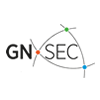Electric mobility options for clean and low-carbon transport systems in the Hindu Kush Himalaya region
Organizers: ICIMOD, UNIDO, GN-SEC
Venue
Online
Date & Time
24 March 2022
9:15 -12:00 CET; 14:00 – 16:45 NPT
About the webinar
This webinar, organized under the Global Network of Regional Sustainable Energy Centers (GN-SEC) programme, will feature presentations by international experts on the global status, programmes, and possibilities in electric mobility (e-mobility) to facilitate dialogue with transport and energy policy makers from the Hindu Kush Himalaya (HKH) region.
The webinar will include discussions on e-mobility options and perspectives and provide quality inputs for the development of a potential regional policy framework and e-mobility roadmaps for HKH mountain regions. The webinar will provide the attendees with:
- A backgrounder on e-mobility solutions and a look at the status of e-mobility today
- An assessment of the suitability of e-mobility solutions in the HKH
- A review of the policies that have been introduced in certain countries that have just begun their e-mobility programmes
- An example of e-mobility governance from New Zealand
- A look at the makeup of future mobility
- A look at modern planning methods
- A mechanism to compartmentalize policy themes and identify needed policies
Background
Globally, the uptake of electric vehicles (EVs) has been steadily accelerating across all vehicle sizes, formats, and types. These developments are relevant not only for early-adopter countries, which have currently mature programmes in place, but also for countries that are just beginning with their e-mobility planning. Many areas in the HKH region fall into this latter group and have particular requirements, due to their mountainous topography, electricity generation systems, and local lifestyles.
These areas do, however, have the benefit of lessons learned from early-adopter countries, access to more developed EVs and charging equipment, a wider variety of choices, and greater certainty of where e-mobility might take them. This better-informed position presents an opportunity for many HKH countries to efficiently develop their e-mobility plans and programmes responding to their individual needs and mountainous characteristics. Moreover, a harmonized regional approach facilitated through the REEECH Initiative can help to address existing barriers and accelerate the introduction of EVs more effectively and at lower costs. Cross-border cooperation and exchange can promote equal progress and joint quality standards among HKH countries. It can also create the needed economies of scale to influence international vehicle supply chains, prices, and investments in charging infrastructure and e-mobility-based business models.
The potential social, economic, and environmental short-term and long-term benefits of e-mobility go hand in hand with the expansion of renewable energy systems in the HKH region. In some countries, there are opportunities for grid-to-vehicle and vehicle-to-grid services, including possibilities of participating in emerging global value chains of EV manufacturing and servicing.
Agenda
9:15 -12:00 CET; 14:00 – 16:45 NPT
| Time (Vienna) | Time (Kathmandu) | Programme |
| 09:15–09:30 | 14:00–14:15 | Registration, participants join online |
| 09:30–09:40 | 14:15–14:25 | Welcome remarks – Martin Lugmayr, Sustainable Energy Expert, UNIDO |
| 09:40–09:50 | 14:25–14:35 | Welcome remarks – Mewang Gyeltshen, Programme Coordinator, REEECH Initiative, ICIMOD |
| 09:50–10:40 | 14:35–15:25 | Technical learning session – Andrew Campbell, Senior Electric Mobility Expert, UNIDO
|
| 10:40–11:40 | 15:25–16:25 | Q&A session for HKH |
| 11:40–12:00 | 16:25–16:45 | Closing remarks and way forward |
About the organizers
Since its launch in 2018, the Renewable Energy and Energy Efficiency Capability for the Hindu Kush Himalaya (REEECH) Initiative has been working towards improved access to appropriate and reliable energy services in the Hindu Kush Himalaya (HKH) and safeguarding the mountain ecosystem services through policy implementation, capacity development, knowledge management and awareness, investment, entrepreneurship, and innovation. Hosted by the International Centre for Integrated Mountain Development (ICIMOD), REEECH aims to support the centre’s Regional Member Countries in developing sustainable energy ecosystems for the uptake of integrated and inclusive energy solutions for productive end-use by mountain enterprises.
The United Nations Industrial Development Organization (UNIDO) is a specialized agency of the United Nations and has the mandate to promote inclusive and sustainable industrial development in developing countries. The transition towards affordable, reliable, and clean energy services is an important requirement for competitiveness, industrial uptake, and environmental sustainability. Under the GN-SEC programme, UNIDO assists regional organizations in the establishment of regional renewable energy and energy efficiency centres and facilitates South–South and triangular cooperation on joint sustainable energy issues and solutions. The network of centres aims to accelerate the uptake of clean energy technology markets by addressing existing barriers through regional tools and methodologies.
How to join the webinar
Time: Mar 24, 2022 02:00 PM Kathmandu, (09:15 AM, Vienna, 09:15 PM, Auckland)
Join Zoom Meeting
https://zoom.us/j/97511493565?pwd=cGE4WmgveDdEdURZV094aENFY1kvQT09


